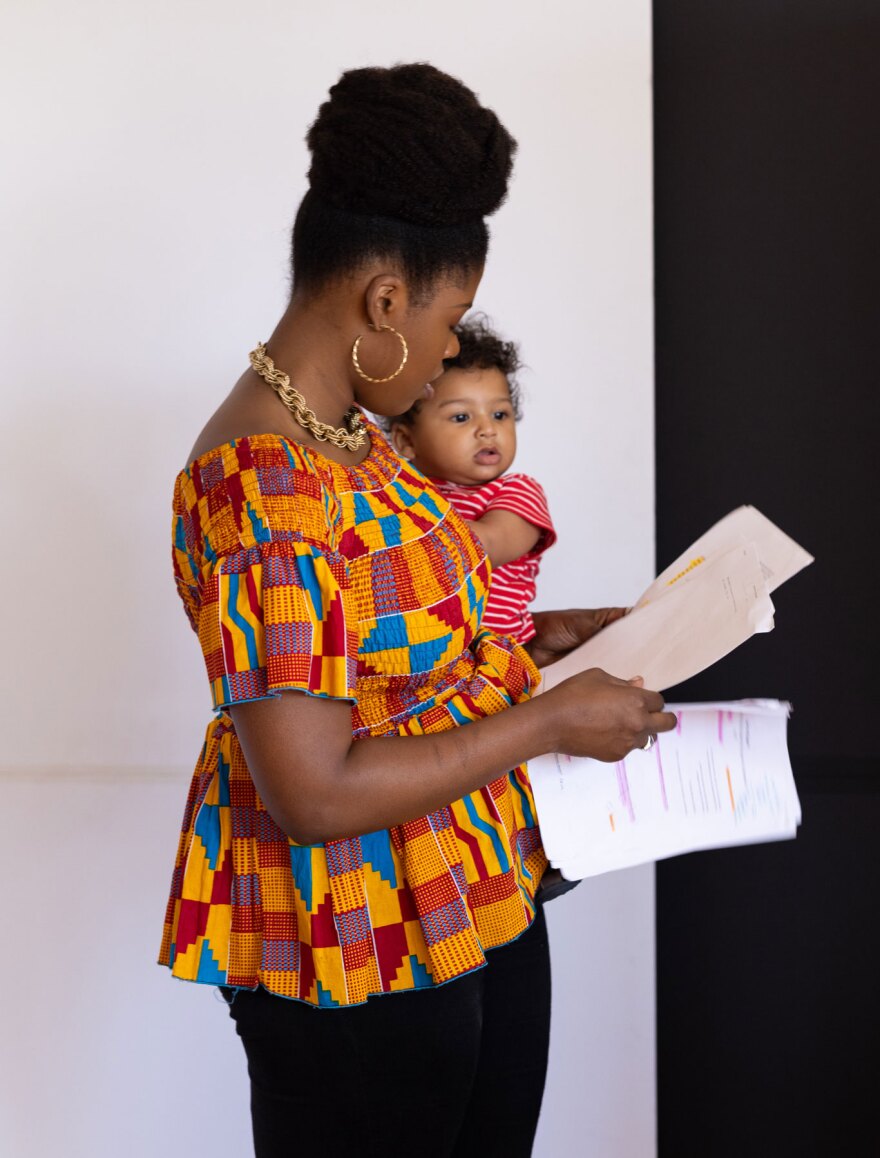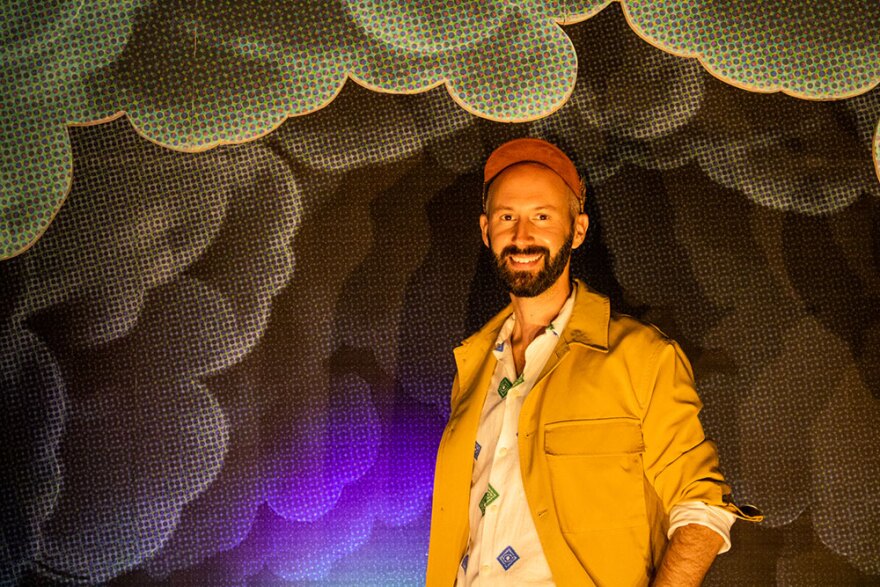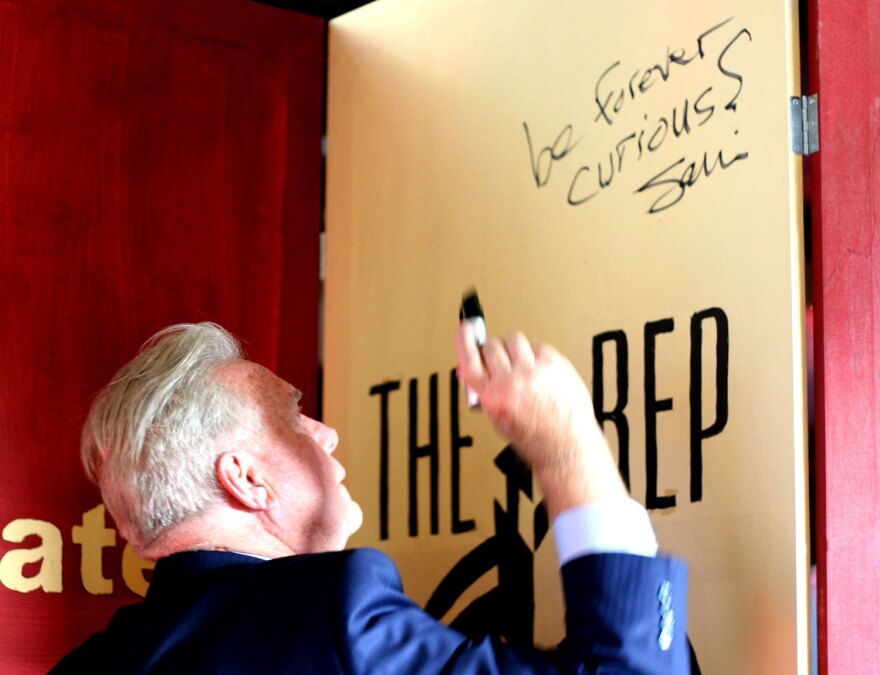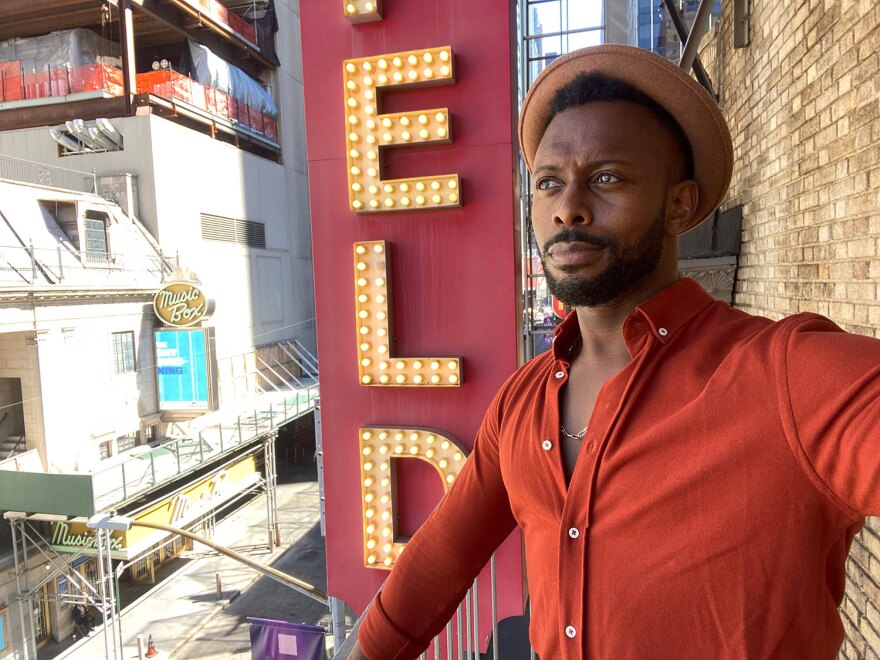You can find part 1 here, where we spoke with classical performers about the impact of the last two years.
In this second installment of a series on the second anniversary of COVID-19 shutdowns and event cancellations — and the impact these past two years have had on the performing arts sector, we continue with the state of the theater.
Two years ago, theaters went dark across the country. Since then, we've seen Zoom plays, filmed productions or outdoor theater. And in June of 2020, theater workers nationwide joined together on the "We See You White American Theater" campaign, launching an industry-wide reckoning — and ongoing activism.
'Art should be a mirror to society'
"My name is Joy Yvonne Jones. I'm an actress, poet, playwright and President of the San Diego Black Artist Collective, as well as the associate artistic director at New Village Arts Theater. The last two years have been incredibly challenging. On March 12, 2020, I was in the middle of a phenomenal show. We hadn't opened yet, but we were in tech, and it was the last day of the last tech when everything got shut down. And there was so much hope for it to come back, and it would be two weeks and we'd be back at it again.
"Now, here we are two years later, and the world has changed. I spent a long time just sitting and trying to figure out how to make art. And I found art activism and really found peace and love in creating art with a message that I feel like is important for us today. Like, art should be a mirror to society. So I feel like I'm doing my part. I'm doing something when I create art with meaning.

"Zoom plays were like our lifeboat in the middle of the storm. We were trying to create art and tell stories safely. As an actress, my biggest challenge was trying to tell this cohesive story with a person that I am in this moment with who could be a million miles away. But we both had the love and the intention to share with the world our art. And so try as we might, we told those stories with whatever we had around us. We carved out spaces in our homes, away from the chaos of just life at home to create. They may not be the best plays in the world, but they were how we survived. And I'm very curious to see how they are incorporated in theater in the future."
— Joy Yvonne Jones, actor, poet, playwright and San Diego Black Artist Collective president
'The imagination is something that's very, very powerful'
For some working in the theater industry — particularly those working behind the scenes — being "in the room" is critical to their profession.
"I am David Israel Reynoso. I'm a scenic/costume designer and exhibit designer as well. So much of the work that I do as a scenic designer, as a costume designer, is very much dependent, as you can imagine, on having an audience. And so how do you make theater, how do you design for theater when there is no audience?
"So much of what I love about what I do is the idea of being hands-on, really feeling the textures of fabrics. Or when I'm working on a set, the idea of being there to help with the set dressing. There's something very instinctive about the work when I'm getting to use my own hands. There's a lot, too, then I kind of try outright as it feels pretty sculptural.

"It's something that I think surprises people to hear is that there were projects that were frozen or sort of postponed pre-pandemic. There were contracts that I had signed, agreed to, that I was paid for pre-pandemic, and then suddenly post-pandemic had to follow through on because the agreement was there. In the midst of the pandemic, of course, I had to generate other work and be a bit creative in terms of how it was that I was making a living. And then now these shows that were sort of on hold had to suddenly come back.
"So much of Immersive work is really truly about allowing yourself to get lost in a space, right? This idea that somehow you are activating your muscle memory, you're moving through a space, your senses are active, and you're smelling things, touching things. And so one thing that was really interesting to contemplate is how do you evoke that feeling when you're not able to create a space that people are going to be touching or occupying? The idea that, of course, the imagination is something that's very, very powerful. And when there's an invitation to play, to fill in the gaps, I think something very powerful and profound can happen."
— David Israel Reynoso, scenic, costume and exhibit designer
'Audiences are about 50 percent of what we were seeing'
Sam Woodhouse is set to retire later this year as artistic director of the San Diego Repertory Theatre, after an incredibly long career working in local theater. I asked him what it's been like these last two years and the prognosis for the theater in terms of recovery.

"This has been the most difficult two years that I can recall in my 46 seasons as artistic director of San Diego Repertory Theater. Our business, the reason we exist is to gather people together, live in a room to share a story. And for most of the past two years, we couldn't do that. So we all talk about pivoting to video streaming, which we did a tremendous amount of, but it is simply not the same as the live theater experience.
"The revenue from streamed productions compared to the revenue from live productions is, generally speaking, I think we saw about somewhere between 20% to 40% of the live revenue when we were streaming. So a huge loss of ticket revenue.
"[Now], we are seeing audiences that are about 50% of what we were seeing before the pandemic. So the recovery is going to be a slow one, I believe, and will take time as people remind themselves about the thrills of live theater experience, and perhaps even more importantly, as they become less afraid of the COVID virus and more willing to go out and sit in a room with a whole bunch of strangers."
— Sam Woodhouse, San Diego Repertory Theatre artistic director
'I had no idea what role I was going to be on for next'
Josh Breckenridge grew up in San Diego County and works on the Broadway production of "Come From Away" — which got its start at the La Jolla Playhouse. During the pandemic, when Broadway shut down and work dried up, he moved home and even recorded an album. He spoke to us from New York.

"On March 12, 2020, we got that official cutoff from the Broadway League and the powers that be that Broadway was shutting down temporarily because of the pandemic.
"We did a film version of "Come From Away" that's available on Apple TV+, and that was kind of a baby step back into the world of "Come From Away," and then from there took a little more time as Broadway got its stuff together and then in the fall came back full throttle — not without our hiccups like everyone had. We had an omicron hit and a huge struggle. We had to cancel twice shut down twice because of COVID outbreaks in our company and I don't think I've mentioned this before but I'm the dance captain and one of the standbys at "Come From Away" on Broadway and so it's my job to keep up the integrity of the show from a blocking and choreography standpoint, as the dance captain.
"Part of my job was putting new people back into the show when we came back, keeping up the cleanliness of the show and at the same time being ready to go on for five of the male roles in the show.
"The show is composed of twelve actors, six men, six women. My job is to cover all but one of the men and be able to teach and note and keep tabs on all the other characters. So it's been a busy career, especially as of late with "Come From Away" and very busy during the huge kind of splash of omicron, because we had people dropping like flies. I had no idea what role I was going to be on for next.
"Luckily there's been a huge resurgence, or I should say a bit of respect and acknowledgment of standbys and swings and understudies and covers in general during this pandemic."
— Josh Breckenridge, recording artist, dance captain and standby for Broadway's "Come From Away"
___
In part three, we will explore how the past two years of the pandemic have impacted the live music scene and local music venues.
"The rules kept changing so much that you just didn't know what you were doing from week to week, day-to-day." Ted Washington, security staffer and stage manager at the Casbah, will share his experience in part three, airing Thursday on KPBS Midday Edition — plus a musician and a venue owner.







